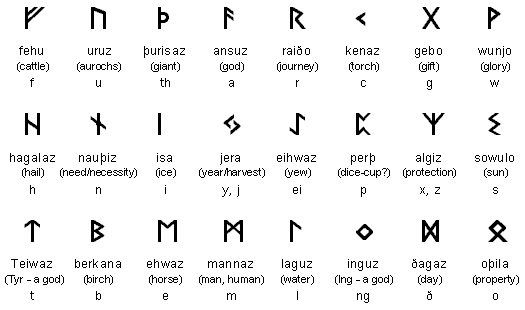“Although he’s a foreigner, he speaks our language, don’t you? […] I want to learn some of your language. Will you teach me, priest?”
This is a quote from the third episode of the first season of the TV show Vikings (History Channel). The main character, the Viking warrior Ragnar Lothbrok, talks to Athelstan, the polyglot priest he took from England as a slave. What impressed me about Vikings, among the rest, is how historically and linguistically accurate it is (as much as a non-documentary show like Vikings can be). At the beginning of the first episode, we hear people speaking in a language that is not English, the main language of the show. We are thus immediately introduced into an ancient world (we are in the Early Middle Ages), where warrior farmers and fisherman spoke Old Norse. Old Norse is a North Germanic language that used to be spoken in Scandinavia, approximately in the areas now occupied by Iceland, Norway, Sweden and Denmark. As shown in the series, the language used the runic script.

In order to make sure that the pronunciation was accurate, the creator of the series Michael Hirst, with the help of a group of linguists, looked at the phonetic traits of Icelandic, which, among the modern languages, is the closest to Old Norse.
During the first season, Ragnar organises the first of a long series of discovery voyages heading West, thanks to which he reaches Britain. This is where we encounter the second and the third old languages of the show: Latin and Old English. Latin, the language of the Romans, at that stage was a literary language and the official language of the church in several parts of Europe, and it is indeed in a monastery that we hear it for the first time. The language, however, was hardly ever spoken in everyday conversation. In the Early Middle Ages, Latin had already started splitting into the various Romance Languages (Italian, Spanish, French, Portuguese and so on), and people were using local varieties as means of communication. In Britain, for example, the common tongue was generally Old English. Spoken by the Anglo-Saxons, by whose name it is also known, Old English is another German language, and belongs to the Western branch of the family. The language was initially written with Runes, but later the Latin script was adopted: the famous epic poem Beowulf, for example, is written in a variety of Old English. What we now call English, however, is the by-product of a massive process of “Frenchisation” of language and culture that Britain experienced during the centuries. For these reasons, modern English is significantly different from Old English, which actually sounded more like modern German.
In the third and fourth seasons of Vikings, Ragnar and his warriors move to the mainland Europe and try to conquer Paris. This is where we find the last dead language of the show. In Paris, as in other Northern territories of France, people spoke Old French, which, in spite of its Romance origins, at that stage sounded more like modern German than modern French. Old French, or Gallo-Romance, was later known by the name langue d’oil, opposed to the langue d’oc, or Occitan, which was spoken in the southern parts of France.
Interestingly, the show uses these languages (with English subtitles) especially when speakers of different idioms come into contact. In this way, not only can we appreciate the variety of sounds of the languages, but also the real linguistic difficulties that these peoples encountered when exploring other territories. Conveniently for the show, however, Ragnar has two interpreters: Athelstan, the priest who can speak Old English, Old Norse and Latin, and the wanderer Sinric, who speaks Old Norse and Old French, and who accompanies Ragnar to Paris.
On the top of that, part of Vikings soundtrack is composed by Wardruna, a musical project based in Bergen, Norway. The songs are inspired by Northern spiritualism and are played with old Nordic instruments. When they are not instrumental, they are sung in three languages: Norwegian, Old Norse and its ancestor, Proto Norse. Given that today is Winter solstice in the Southern hemisphere, I will conclude this post with a quote from one of Wardruna’s song, NaudiR, named after one of the Runes:
Hjarter hamrar
Røkkidimma døljer
det auge kan sjå
Og vegen eg følgjer
og dei spora eg trår
er kalde, så kalde>>>The heart is hammeringThe smoke is hidingWhat the eye can seeAnd the path I am takingAnd the tracks I treadIs cold, so cold<<<

